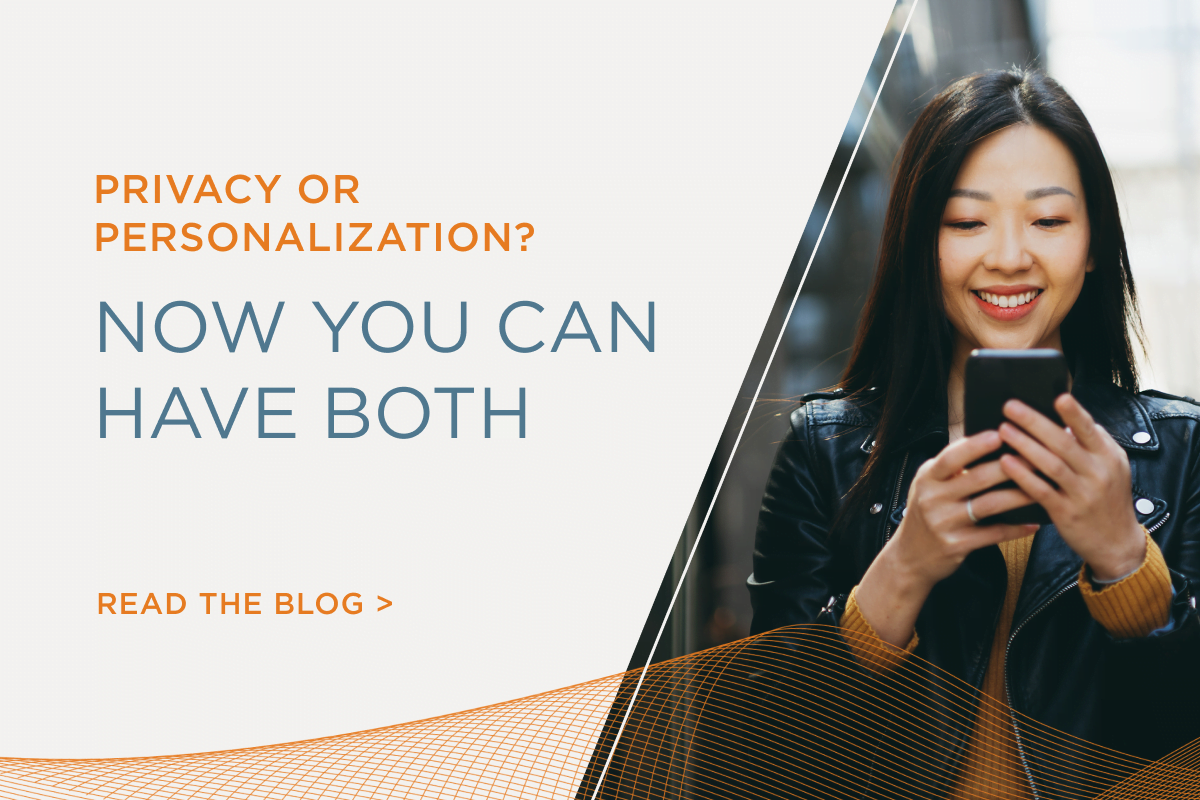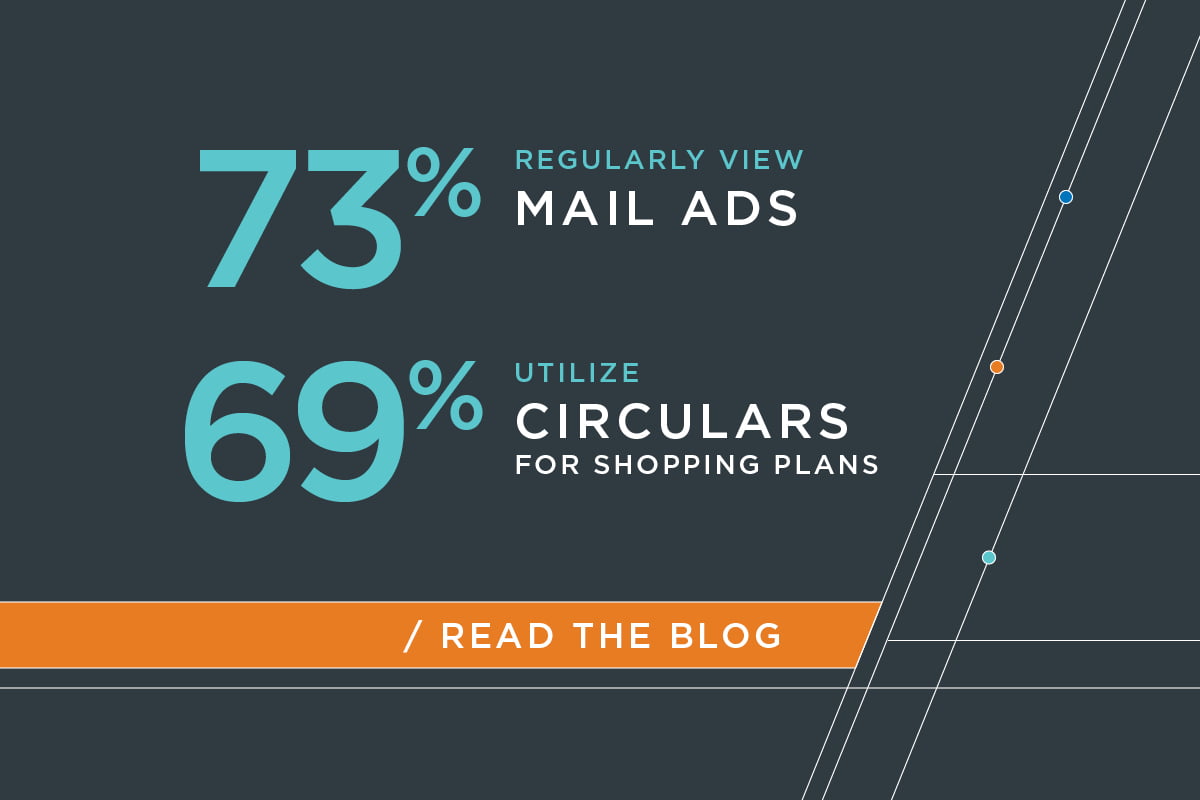Summary
- Consumers like receiving personalized ads that bring value to their lives.
- However, people are increasingly concerned about privacy and demand transparency in how companies use their data.
- Brands must find ways to personalize ads in privacy-safe ways.
Marketers are in quite a dilemma. On the one hand, consumers want personalized ads relevant to their interests. Yet, they are increasingly concerned about their privacy and the use of personal information for targeted advertising.
A January 2023 Vericast survey of 1,000 consumers in the U.S. validated this paradox. The study showed that consumers are more likely to engage with and trust brands that are transparent about their data collection and use practices. People appreciate personalization, but they expect the brands they buy from to respect their privacy as well.
Personalized advertising works
Consumers want to see ads that are relevant to their needs. Twenty-seven percent of respondents to the Vericast survey said advertisements that are very specific to their needs make them feel happy. And those positive feelings can inspire action. Around 20% of consumers said they were reminded of a brand they previously purchased from when they saw a personalized ad, and 18% specifically said personalized ads were useful to them and positively influenced their purchase decisions.
The survey also showed that personalization could impact future shopping behavior. Among the survey respondents:
- 24% are likely to click on ads for something they have considered purchasing but have not searched for
- 27% are more likely to respond to personalized offers that include a deal or discount
- 16% are likely to buy again from brands that served them ads after making a purchase
When personalization goes wrong
However, personalization can also backfire if implemented the wrong way. The survey found 30% are concerned, 11% get confused, and 18% are outright annoyed by personalized ads.
Poorly executed personalization can waste advertising dollars. The survey showed that:
- 67% have seen irrelevant ads in their social media feeds
- 18% complained they get too many ads from a brand they bought from
- 8% of consumers said personalization made them avoid the brand
Privacy trumps personalization
When it comes to online ads, half of the consumers surveyed prioritized their privacy over receiving personalized, relevant ads. Only 36% chose personal relevancy as the most important consideration when getting online ads, while 14% were unsure. This preference is consistent across generations, marital status, and household income.
It’s not that these consumers don’t like personalized ads; they are just even more concerned that their personal data doesn’t get collected and sold to the highest bidder. One-third to nearly half of consumers surveyed are unsure how social media platforms like Meta and TikTok use their data. This perceived lack of transparency drives a lot of consumers’ privacy concerns.
- 39% have a general understanding of how websites use their data to personalize ads
- 23% are unsure what kinds of information companies collect
- 21% do not want their online behaviors tracked
Personalizing in a privacy-safe manner
Pertaining to digital advertising, consumers want a personalized experience, but not at the expense of their privacy. The good news is that the personalization consumers want and the privacy they demand are not mutually exclusive when done right. Here are some best practices for delivering personalized ads while also protecting consumer data:
Be transparent about data collection
Consumers want brands that are transparent about what they do with customer data. Brands should clearly communicate what data they collect and how they use it. They should also obtain explicit customer consent before collecting sensitive data. Customers are more likely to trust a brand that is transparent about its data collection practices.
Give customers control over their data
Thirty-nine percent of consumers surveyed feel powerless in controlling or informing how companies use their personal data. This desire for empowerment is a real opportunity. The best brands will help their target audience feel known and understood by the companies they want to invite in. These brands should consider getting explicit consent to collect personal data and make it easy for their customers to exercise their rights with respect to their personal data.
Brands should also respect customer preferences and avoid bombarding them with irrelevant or intrusive personalized messages. Consider this: 67% of survey respondents said they had seen ads irrelevant to them in their social media feeds within the past seven days.
Use only the data you need to help customers
People want brands they trust. Nearly half of consumers surveyed do not want companies to sell their data. Marketers should collect data only when it is necessary for providing personalized experiences or otherwise delivering or enhancing their services. Consumers are willing to share their information if brands are transparent about how they use their data and if it adds value to their lives. They favor brands that send them helpful and relevant ads. For example, additional Vericast research has found that people want marketing messages that help them save money, save time, and reward them for their loyalty.

Use anonymized data whenever possible
Anonymized or deidentified data can help brands personalize experiences without compromising customer privacy. This involves removing personal information from the data set but still retaining information about their interests and behaviors. By analyzing anonymized or de-identified data, brands can create targeted ads relevant to a person’s interests without compromising their privacy.
Build a privacy-focused martech stack
Brands must have a martech stack that lets them deliver personalized ads while protecting their customers’ privacy. It should include:
- A customer data platform (CDP) to collect and organize customer data from various sources,
- A data management platform (DMP) to create audience segments based on interests and behaviors,
- A consent management platform (CMP) to manage customer consent and preferences for data usage, and
- An ad serving platform to deliver personalized ads to your target audience across various channels.
Work with the right partner
An alternative to brands doing all the work themselves is to work with a partner that can serve personalized ads that satisfy consumer privacy and preferences. Vericast can help brands reach high-target consumers and deliver both personalization and privacy.
Our award-winning Consumer Graph analyzes billions of daily consumer behaviors, coupon redemptions, and location signals from over 120 million households, allowing you to deliver more accurate and relevant campaigns while respecting consumer privacy choice
See the power of Vericast in reaching a target audience at scale with our digital marketing solutions.


